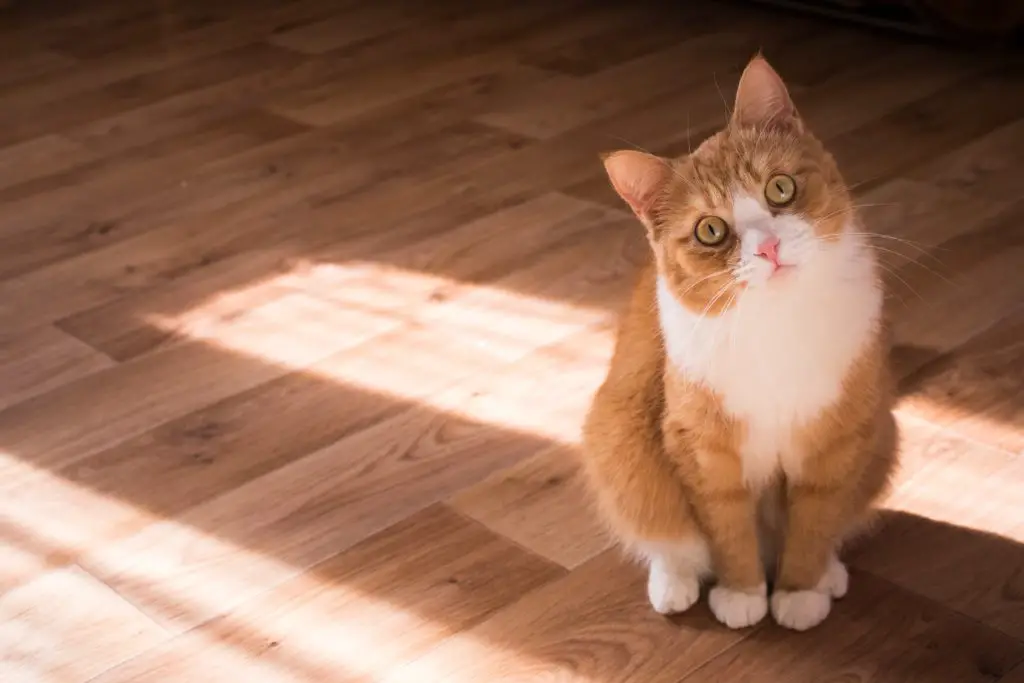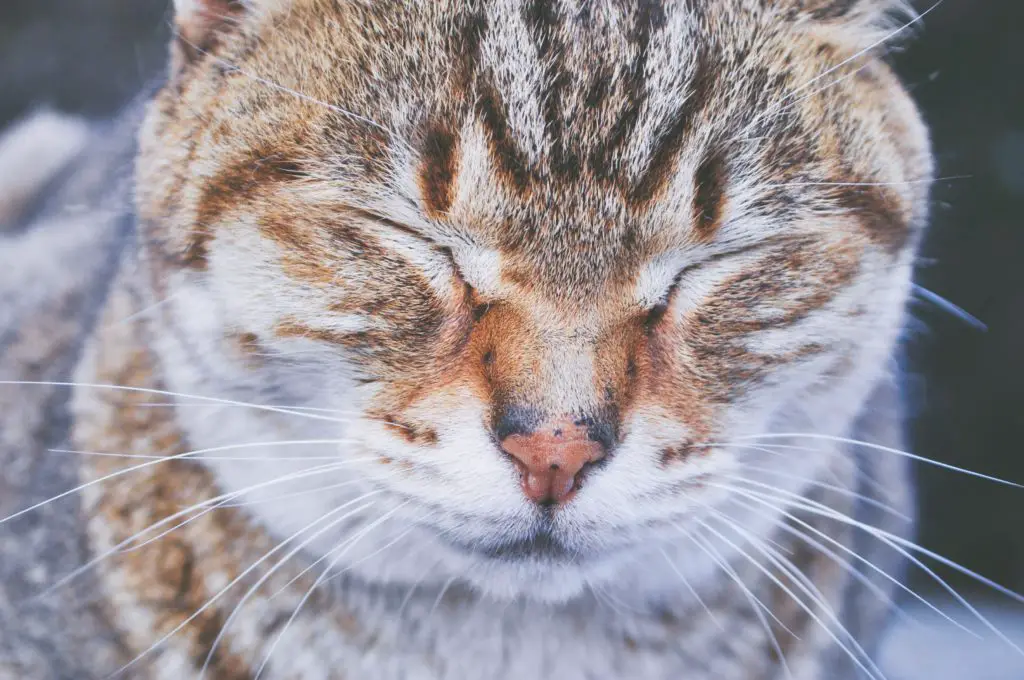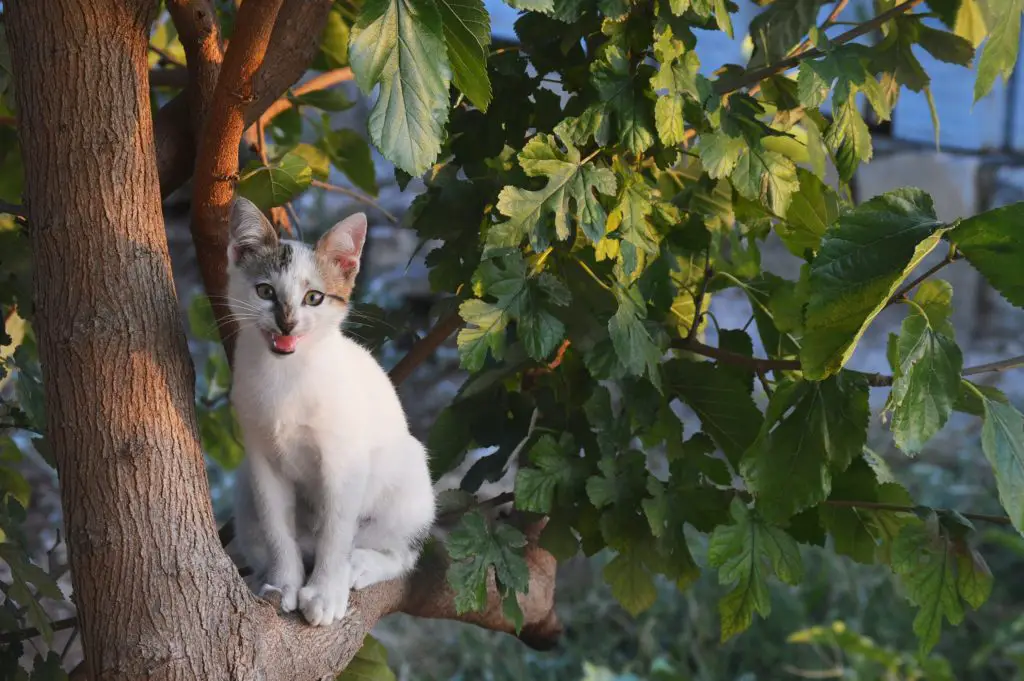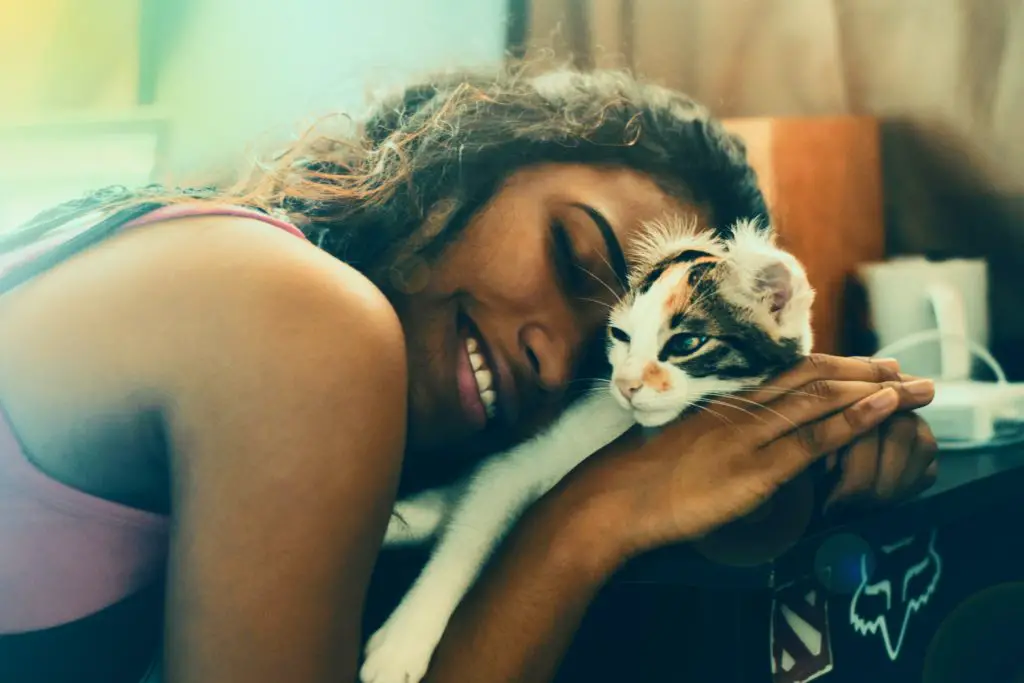We all love our cats, even when we don’t fully understand their behavior.
A cat’s hiss does not mean that it is an aggressive or hostile animal; it’s simply a way to express its feelings. Most commonly, a hiss tells you that your feline would like some alone time. Your cat is just probably being a bit moody and tells you it’s time to stop playing or petting it.
But what do you do if their hissing becomes a regular occurrence and makes you feel uncomfortable? The first step lies in understanding this behavior; the second is what you can do to address it. Continue reading for the answer to these and many other questions.
Why Is My Cat Hissing But Being Friendly Towards Me?
Among the greatest misconceptions about cats is the meaning of a hiss. Most people believe that a cat’s hiss is a display of aggression, but this is often not the case.
More likely, your cat feels scared and is hissing as a defense.
If your cat feels threatened or victimized somehow, it will often hiss to avoid having a physical confrontation. In most instances, a hiss is your cat expressing that it feels uncomfortable or under threat.
A hiss is not your cat’s way of taunting you or other family pets. Instead, they’re saying, “I’m scared,” or “I feel vulnerable.”
Punishing your cat for hissing is like punishing a child for being upset. It serves no purpose and will only exacerbate the situation.
Can Cats Hiss When They Are Happy?
In general, no. A cat usually hisses to warn that it is unhappy with a particular behavior or feeling defensive.
They hiss as a warning that you need to back off and leave them alone because they are becoming agitated or afraid.
If your cat is hissing at you, it’s a clear indicator that something is amiss. Figuring out what that something is will help you guide your cat through these emotions.
However, there are always exceptions to the rule. Some cats – such as the Savannah or Bengal – can hiss from excitement. In these instances, the hiss is not a display of hostility, but rather a way for your feline to express itself.
Why Does Your Cat Hiss At You, Then Cuddles/Plays?
There are many reasons why a cat hisses at you, and not all of them are bad. Remember, this is a normal behavior in cats and is one of the ways for them to communicate with you.
Among the most common reasons for a cat to hiss is that something is scaring them. If you have a dog in your house, or even a particularly boisterous child, they could incite anxiety in your feline.
Some of the common signs that your cat is feeling scared include:
- Their ears will press flat against their heads.
- Their eyes will be wide open (even wider than usual).
- Their tail fluffs up.
If your cat’s hiss is accompanied by one or more of these signs, it’s a good indicator that their behavior is coming from a place of fear.
A hiss can be a way for a cat to establish its boundaries with you. If you’re too physical or overly fussy with it, the cat may meow to ask you to back off a little.
It’s imperative to teach boundaries and respect to children, so they don’t provoke unwanted behavior in their pets.
If hissing is new to your cat, and they are otherwise calm and friendly, this behavior could signify that they are in pain.
If the hissing occurs when you touch a particular area of your feline’s body, it’s a good indicator that they could be experiencing discomfort.
In case you’re unsure about the health and wellbeing of your cat, it’s always best to call in for a health check with your vet.
Why Does My Cat Hiss At Me While We’re Playing?
One minute you’re playing together nicely; the next, your feline hisses at you, leaving you feeling hurt and confused. Again, try not to take it personally; this is your kitty trying to communicate with you.
They might get hurt while playing; maybe they caught their tail or got a scratch. Or it could be that they’ve just had enough for now and are becoming overstimulated.
Either way, if your cat starts to hiss while you’re playing with them, it’s time to take a break.
Let them have some space and time alone. They’ll come back for another game when they’re ready.
What To Do With A Cat That Hisses At You But Acts Friendly?
If your cat hisses at you, it’s essential to give it some space. Your instinct will likely be to cuddle and comfort your cat, but this could increase their feeling of vulnerability.
Instead, let them stay in control of the situation and give them some space to work through their emotions.
Allow your cat to find a space to curl up and hide for a while. And avoid staring or making direct contact, as these cats can view this as a direct challenge or threat.
Be patient with your cat and realize it may take them several hours to calm down. Once they appear calmer, try to coax them out using a treat or catnip.
Approach from the side and avoid eye contact. You want to present yourself in the least threatening way possible.
When Should I Worry About My Cat Hissing At Me?
The odd hiss is a normal behavior in cats and nothing for you to worry about. However, if this hissing is accompanied by aggressive behavior, then it’s time for you to consult a professional.
Hostile animals can present a danger to themselves and your family, so it’s essential to address any behavioral issues as soon as you can.
Additionally, if your cat changes suddenly from being a calm, laid-back feline to suddenly experiencing outbursts of hissing, it may be a sign that something is wrong.
Like any other behavioral change in an animal, it’s good to check for any underlying health concerns with your local vet.
Conclusion
Hissing is a standard form of communication for a cat, and more often than not, it’s just their way of asking you to give them some space.
In most circumstances, allowing your kitty to hide away for a while will enable them to calm down and return to their regular, friendly self.
However, if hissing persists or is accompanied by particularly aggressive behavior, it could signify that something is wrong. In this instance, consult with your vet for the best advice.

My name is Katie, and I have had different pets at home for as long as I can remember. While I can definitely say I love all animals in general, my heart belongs to cats and dogs. I know you are supposed to choose one or the other, but I could never really decide. I’ve also owned hamsters and fish when I was a kid, and they filled my childhood with very delightful memories.





